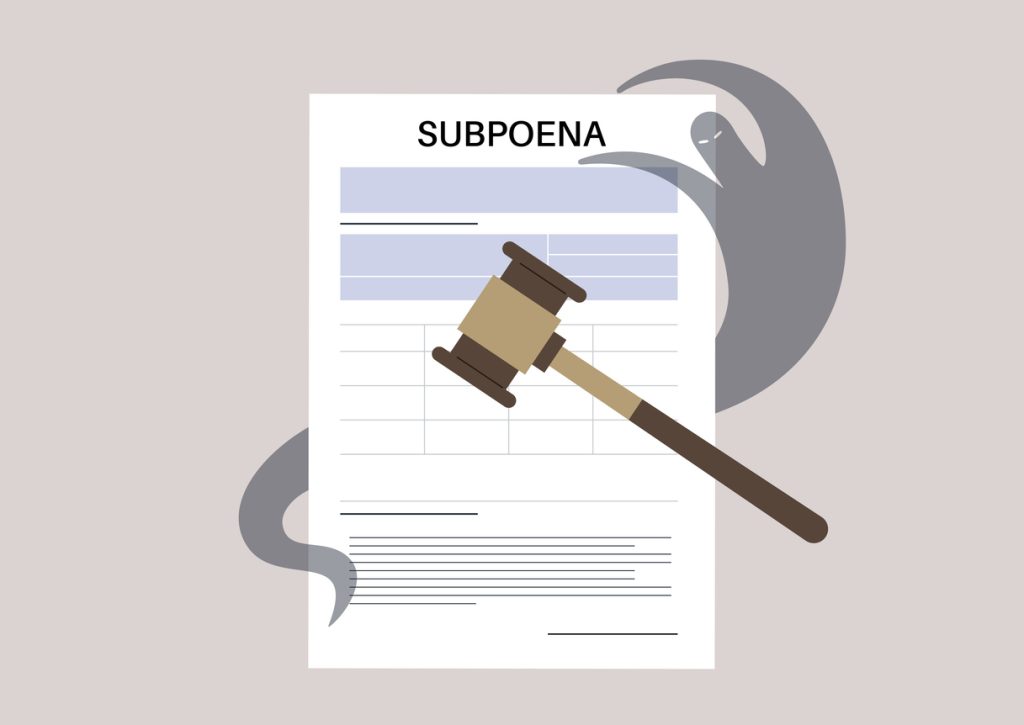Small business owners often operate under the assumption that legal oversight is reserved for multinational corporations or massive financial institutions. However, the U.S. Treasury’s Office of Foreign Assets Control (OFAC) can issue a powerful investigatory tool known as the administrative subpoena to virtually any business suspected of sanctions violations. For those unfamiliar with this process, an administrative subpoenas lawyer can provide critical assistance at a moment when errors in judgment or failure to respond properly may escalate into serious legal trouble.
OFAC administrative subpoenas are not simple requests. They are formal legal demands issued pursuant to 31 C.F.R. Part 501.602, and they compel businesses to produce records, explain transactions, or clarify communications that might relate to prohibited dealings with sanctioned entities or individuals. When such a subpoena lands on the desk of a small business owner, the complexities of federal sanctions law become a sudden, pressing concern. This is where the role of a qualified administrative subpoenas lawyer becomes not only valuable—but essential.
Why Small Business Owners Should Take OFAC Subpoenas Seriously
OFAC operates under broad federal authority and plays a critical role in enforcing U.S. economic sanctions. These sanctions are not limited to high-profile foreign policy targets. They include strict limitations on doing business with individuals or countries under restrictions, such as those listed on the Specially Designated Nationals and Blocked Persons List (SDN List). Small business owners may unknowingly fall into compliance issues by exporting products, dealing with overseas clients, or using third-party vendors who are not fully vetted.
Once a subpoena is issued, OFAC expects a timely, accurate, and comprehensive response. Non-compliance, late responses, or providing incomplete information can lead to civil penalties or even criminal investigations. A seasoned administrative subpoenas lawyer helps small business owners avoid these pitfalls by managing document production, verifying the scope of the subpoena, and drafting proper responses.
Understanding the OFAC Subpoena Process Through the Lens of an Administrative Subpoenas Lawyer
Receiving an OFAC subpoena is a formal legal event—not a casual inquiry. The document outlines the basis for suspicion, demands specific information, and sets deadlines that must be strictly followed. While some business owners may feel tempted to respond on their own, believing that their operations are fully lawful, this can be a costly mistake. A misstep in how one interprets or complies with the subpoena can lead to enforcement actions.
An administrative subpoenas lawyer understands the procedural and substantive components of an OFAC inquiry. These lawyers identify the legal theories behind the subpoena, assess whether the request exceeds OFAC’s authority, and evaluate whether any privileges apply. For example, communications protected under the attorney-client privilege or documents irrelevant to the scope of inquiry may be contested rather than blindly submitted.

Preparing an Effective and Legally Sound Subpoena Response
One of the most critical roles of an administrative subpoenas lawyer is helping small business owners prepare a legally sound and thorough response. This task involves reviewing internal records, understanding what documents are required, and ensuring that any response doesn’t inadvertently expose the business to additional scrutiny or liability.
Federal law does not require a business to self-incriminate. Still, failing to provide required documents or withholding too much can lead to a presumption of willful non-compliance. The legal skill involved in navigating this delicate balance makes professional guidance indispensable.
Mitigating Civil Penalties and Enforcement Risks
OFAC has the authority to impose steep civil penalties for sanctions violations—even in cases where no underlying criminal intent existed. These penalties are calculated based on factors like the number of violations, the egregiousness of the conduct, and whether the business voluntarily disclosed the issue. A well-prepared disclosure or explanation, guided by an administrative subpoenas lawyer, can reduce potential fines substantially.
In many cases, an administrative subpoenas lawyer negotiates directly with OFAC’s Office of Enforcement to resolve matters before they escalate. These discussions require deep knowledge of sanctions programs, evidentiary standards, and recent enforcement trends. For instance, referencing guidance issued by the U.S. Department of the Treasury helps clarify intent and correct misunderstandings that might otherwise lead to harsher outcomes.
Recordkeeping Policies That Can Prevent OFAC Subpoena Problems
One underappreciated area where an administrative subpoenas lawyer offers forward-looking value is in building compliance structures that prevent future trouble. By examining a business’s recordkeeping, screening procedures, and internal compliance policies, the lawyer can help a small business avoid triggering red flags in the first place.
OFAC subpoenas often arise not from blatant misconduct but from sloppy documentation, outdated compliance tools, or reliance on third parties without appropriate vetting. Creating a culture of compliance ensures that if OFAC scrutiny ever returns, the business can confidently show that it acted in good faith and within the law.

The Role of Legal Interpretation in Responding to OFAC Questions
OFAC’s regulations are notoriously complex, often intersecting with other federal and international laws. Small business owners are unlikely to be equipped with the nuanced understanding needed to interpret regulatory language and case precedent. An administrative subpoenas lawyer is able to break down the precise scope of what is being requested and identify language within the subpoena that might otherwise be misunderstood.
Sometimes, a subpoena may contain ambiguous phrasing, or request “any and all documents” pertaining to broad topics like foreign financial transactions. Without proper legal interpretation, business owners might under- or over-disclose. Misinterpretation is one of the most common ways business owners unintentionally increase their legal risk.
Case Examples: How Small Businesses Get Caught in Sanctions Investigations
Recent OFAC enforcement actions show that small businesses are not immune from federal scrutiny. For example, a family-run export company may unknowingly sell products to a buyer who is acting as an intermediary for a sanctioned party. Even without direct knowledge, OFAC can issue an administrative subpoena to assess the business’s due diligence procedures.
In such cases, an administrative subpoenas lawyer can help show that the business took appropriate steps to vet its customers, maintained appropriate documentation, and responded to OFAC’s requests with transparency and legal compliance. By demonstrating proactive behavior, businesses may avoid serious penalties.
Importance of Confidentiality and Privilege in Subpoena Response
Responding to an OFAC subpoena may require revealing sensitive business information, including transaction histories, client identities, or internal communications. A seasoned administrative subpoenas lawyer ensures that such information is handled under the appropriate legal privileges and is not unnecessarily exposed to enforcement authorities.
This is especially important for small business owners who work in specialized sectors like fintech, cryptocurrency, or international logistics. The confidentiality of proprietary methods or client relationships must be preserved while still satisfying OFAC’s demands.

Responding to Subpoenas While Continuing Business Operations
Another major concern for small business owners is how to balance compliance with continued operations. When OFAC serves an administrative subpoena, it can disrupt workflows, divert resources, and burden internal staff. An administrative subpoenas lawyer plays a key role in managing this process so the business doesn’t come to a standstill.
Lawyers help compartmentalize the response process, assign appropriate tasks to in-house personnel, and keep executive decision-makers informed of deadlines and legal risks. This delegation structure allows business owners to maintain focus on day-to-day activities while the legal process unfolds in parallel.
How a Proactive Legal Strategy Helps in the Long Term
Beyond responding to the immediate subpoena, an administrative subpoenas lawyer helps small businesses craft long-term compliance plans. This includes recommendations on software tools for sanctions screening, updates to vendor onboarding processes, and training materials for staff.
OFAC has emphasized in its own compliance framework that businesses of all sizes must develop internal controls appropriate for their risk profile. Following these guidelines doesn’t just reduce the chance of future subpoenas—it may also serve as a mitigating factor should enforcement ever occur.
Seeking Help from the Right Administrative Subpoenas Lawyer
Many small business owners are unfamiliar with the nuanced and intimidating nature of OFAC subpoenas. They may attempt to handle the matter informally or delay action until it’s too late. Taking early action by consulting a knowledgeable administrative subpoenas lawyer is not only smart—it’s critical for legal survival.
You can find out more about legal support options by visiting this administrative subpoenas lawyer resource designed for those facing OFAC scrutiny.

Final Thoughts: OFAC Enforcement Is a Business Reality
OFAC enforcement and subpoena issuance are not reserved for headline-grabbing cases. They affect small and mid-sized businesses across the United States, especially as the global economy becomes more interconnected. Whether it’s an accidental transaction with a sanctioned entity or failure to file proper documentation, these infractions can result in heavy penalties.
Understanding how an administrative subpoenas lawyer can intervene early, structure a strategic response, and negotiate favorable outcomes is indispensable. Business owners who take proactive legal steps and learn from past enforcement actions are more likely to protect both their reputations and bottom lines.
For further information on the statutory authority behind OFAC subpoenas and legal compliance procedures, consult this U.S. Government source detailing the official OFAC guidance and enforcement framework.
